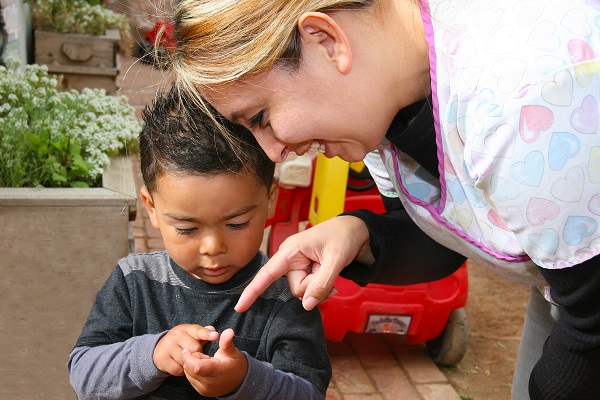Techniques for Improving Instructional Support
Watch this three-part video series to learn about ways staff can improve instructional support and effective teaching practices. Find helpful resources to support this work.
 Adult–child interaction refers to the dynamic exchanges and relationships between educators and young learners that foster meaningful learning, social and emotional development, and school readiness. The resources in this collection focus on building and strengthening adult–child interaction. Strategies include creating positive discipline, encouraging curiosity, self-regulation, and using questions to support learning.
Adult–child interaction refers to the dynamic exchanges and relationships between educators and young learners that foster meaningful learning, social and emotional development, and school readiness. The resources in this collection focus on building and strengthening adult–child interaction. Strategies include creating positive discipline, encouraging curiosity, self-regulation, and using questions to support learning.
Watch this three-part video series to learn about ways staff can improve instructional support and effective teaching practices. Find helpful resources to support this work.
View this webinar for Head Start grantees undergoing monitoring visits during the 2019–2020 year. Discover resources grantees can use to help them focus on improving instructional supports for children.
Find resources to help education staff implement effective teaching practices, including interactions that facilitate concept development.
This series of briefs provides an accessible and usable overview of research on topics related to early learning and child development. They also include resources for families.
Use the resources on this page to strengthen preschool teaching practices.
Use the resources on this page to strengthen infant and toddler teaching practices
These 15-minute In-service Suites are a professional development resource for staff in busy, active early childhood centers and programs. They are organized around one topic or big idea and address effective teaching and assessment practices.
“Scaffolding” means to provide children with just the right level of support to help them successfully complete a task. This webinar shares three main scaffolding strategies.
Use the scientific method’s five steps to help expand children’s understanding of their environment.
Daily schedules and routines help keep you organized. Research shows they also influence children’s social and emotional development. Learn how to develop your classroom schedules and routines in ways that will help you create and sustain a lively but well-organized classroom.